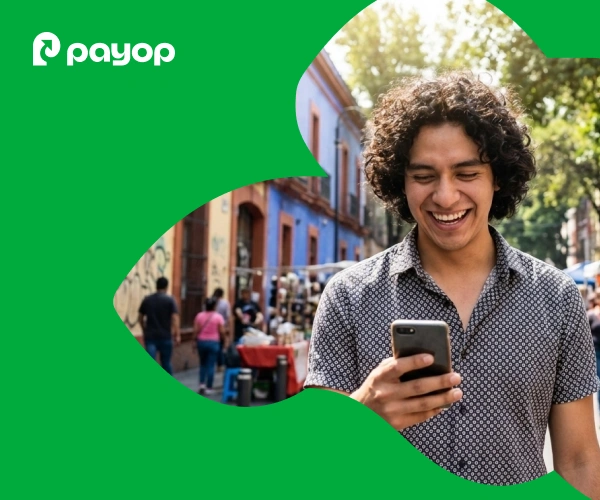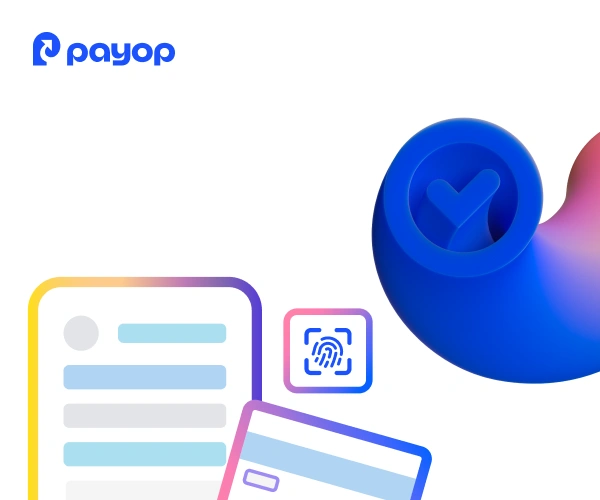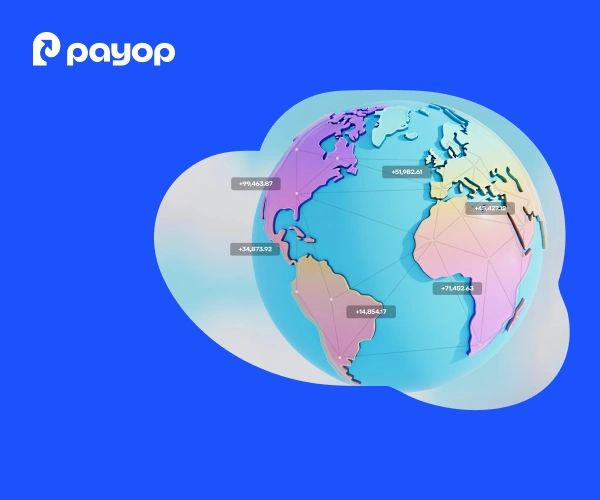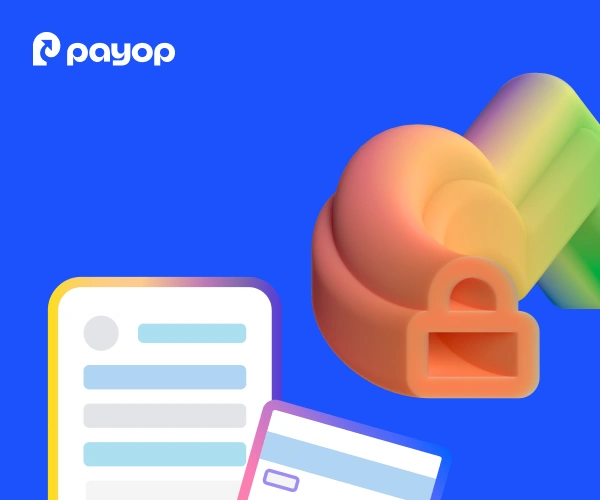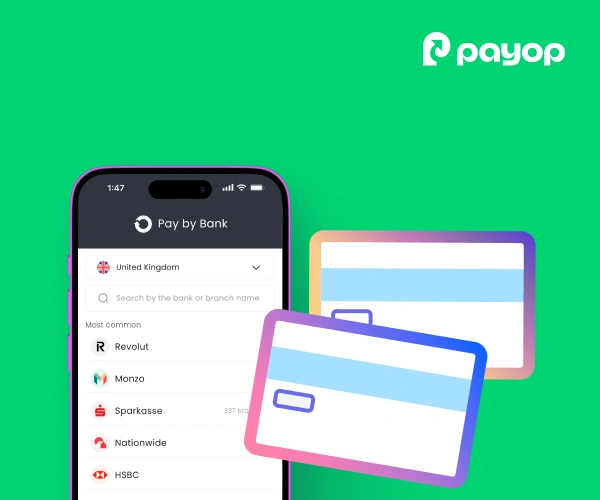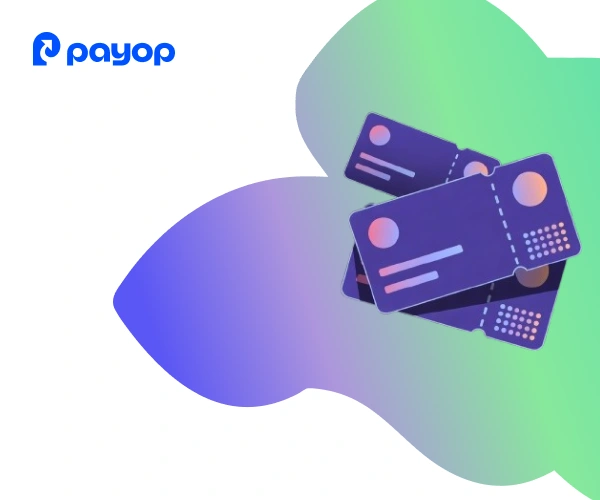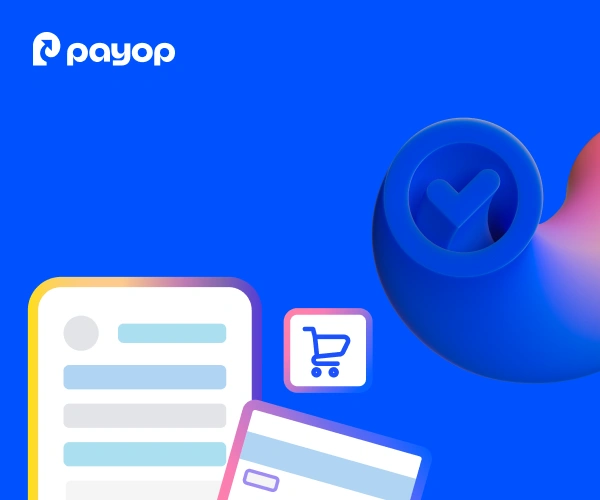The future of mobile payments: Trends and innovations to watch
How to accept international payments: Guide for your business
Top payment options for video gaming in 2025
Payment service provider vs. payment gateway: Which do you need?
Pay by Bank vs. Credit cards: Which is better for business?
Payment service provider vs. payment gateway: Which do you need?
When launching an online business, one of the first things to sort out is how you’ll accept customer payments. You’ve probably come across terms like payment service provider (PSP) and payment gateway in your research. While they’re often used interchangeably, they serve different purposes. Understanding the difference is key to choosing the right solution for your business.
What is a payment service provider?
A payment service provider (PSP) offers a complete infrastructure for accepting and managing payments. This includes the payment gateway and covers payment processing, settlements, and reporting – all in one service.
What does a PSP do?
- Provides the merchant with tools to integrate payment methods into their website or app.
- Includes a built-in payment gateway to handle secure data transmission.
- Processes the payment after the bank or card network authorises it.
- Settles the funds, transferring the money to the merchant’s account after deducting fees.
- Offers dashboards and reports to track transactions, conversions, and payouts.
- Handles chargebacks and fraud prevention, often using automated tools.
Benefits of a payment service provider
- All-in-one solution for payments, settlements, and reporting.
- Supports multiple payment methods including digital wallets, bank transfers, and local alternative options.
- Faster onboarding with no need for a separate merchant account.
- Built-in fraud detection and chargeback management.
- Multi-currency and cross-border capabilities.
- Transparent pricing and simplified compliance.
What is a payment gateway?
A payment gateway is a technology that enables merchants to securely transfer customer payment information to the bank or payment processor. It acts as a digital point-of-sale (POS) terminal for online transactions.
What does a payment gateway do?
Let’s go step by step through the payment gateway role in transaction processing:
- Customer initiates payment by entering card or wallet information at checkout.
- Payment gateway encrypts the data to ensure it’s secure.
- The encrypted data is sent to the acquiring bank or payment processor.
- Authorisation request is forwarded to the customer’s bank or card network (e.g., Visa, Mastercard).
- The result (approved or declined) is sent back through the gateway to the merchant and customer.
- If approved, the transaction moves on to settlement by the PSP or processor.
Benefits of a payment gateway
- Secure data transmission using industry-standard encryption.
- Fast authorisation of customer payments.
- Integration with custom merchant accounts or processors.
- Basic fraud detection to reduce risk.
- Ideal for businesses with custom-built payment systems.
Learn the difference between payment gateway and payment orchestration platform.
PSP or payment gateway: Which one do you need?
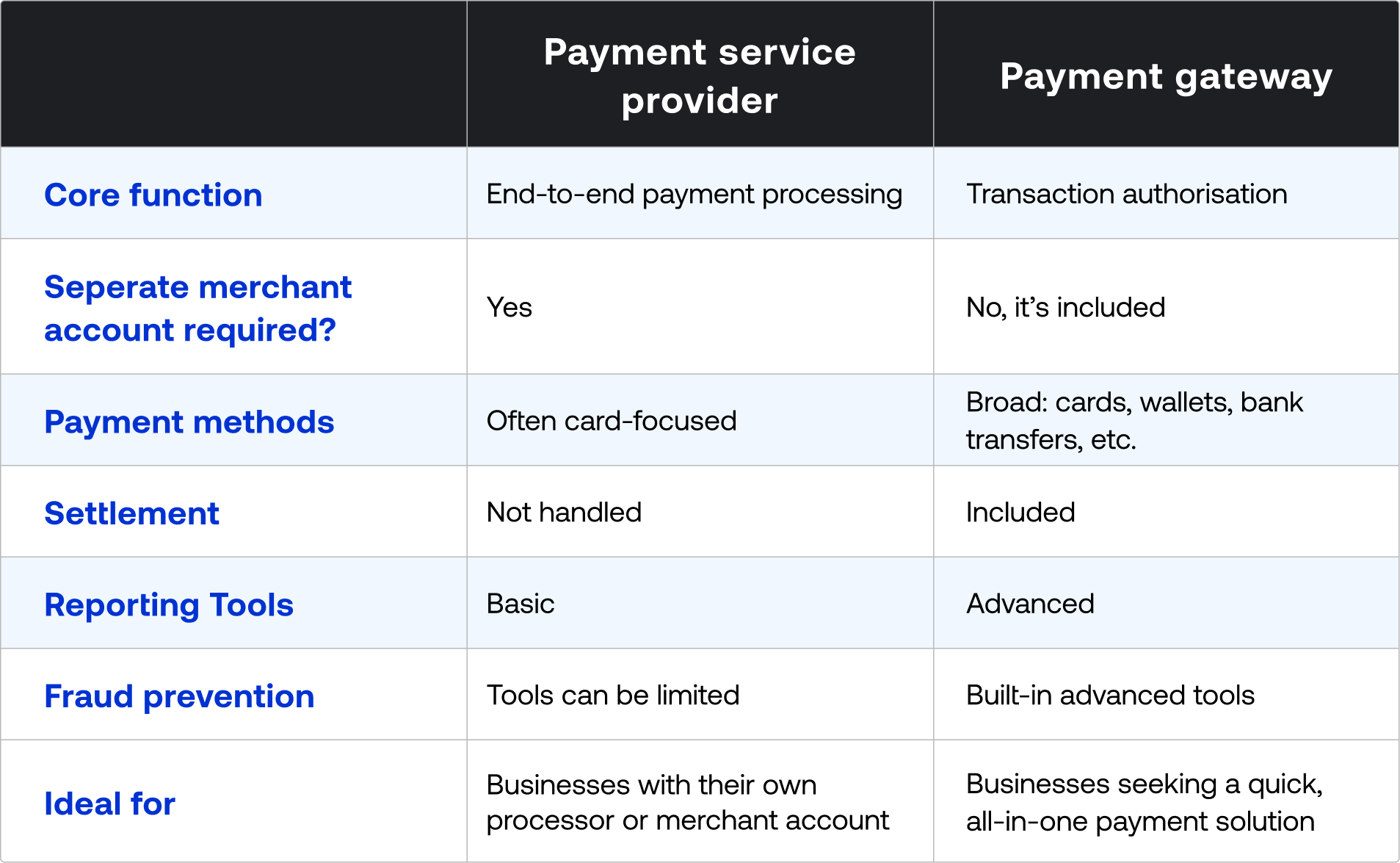
Choose a payment service provider if:
- You’re just getting started and want to go live quickly.
- You want to accept multiple payment methods from day one.
- You don’t want the hassle of managing merchant accounts, acquirer relationships, and compliance.
- You’re an SMB, SaaS, marketplace, or global e-commerce business looking for scalability.
- You need built-in fraud protection, real-time dashboards, and automated settlements.
Learn how to choose the right PSP for your e-commerce business.
Choose a payment gateway if:
- You already have a merchant account with a bank or acquirer.
- You have a dedicated in-house development team and want more control.
- You want to customize your payment system, perhaps working with multiple processors.
- You’re a larger enterprise with an existing payment infrastructure.
Final thoughts
A payment gateway is just one part of the puzzle – it connects your store to banks and processors to authorise payments. A payment service provider offers the full picture, giving you everything from gateway access to fund settlement in one package.
Want an all-in-one solution that simplifies global payments?
Payop is a trusted PSP that helps businesses accept payments with over 500 international and local payment methods worldwide. With easy onboarding, built-in security, and multi-currency support, Payop empowers your business to scale across borders.
Contact us at sales@payop.com to learn more.
